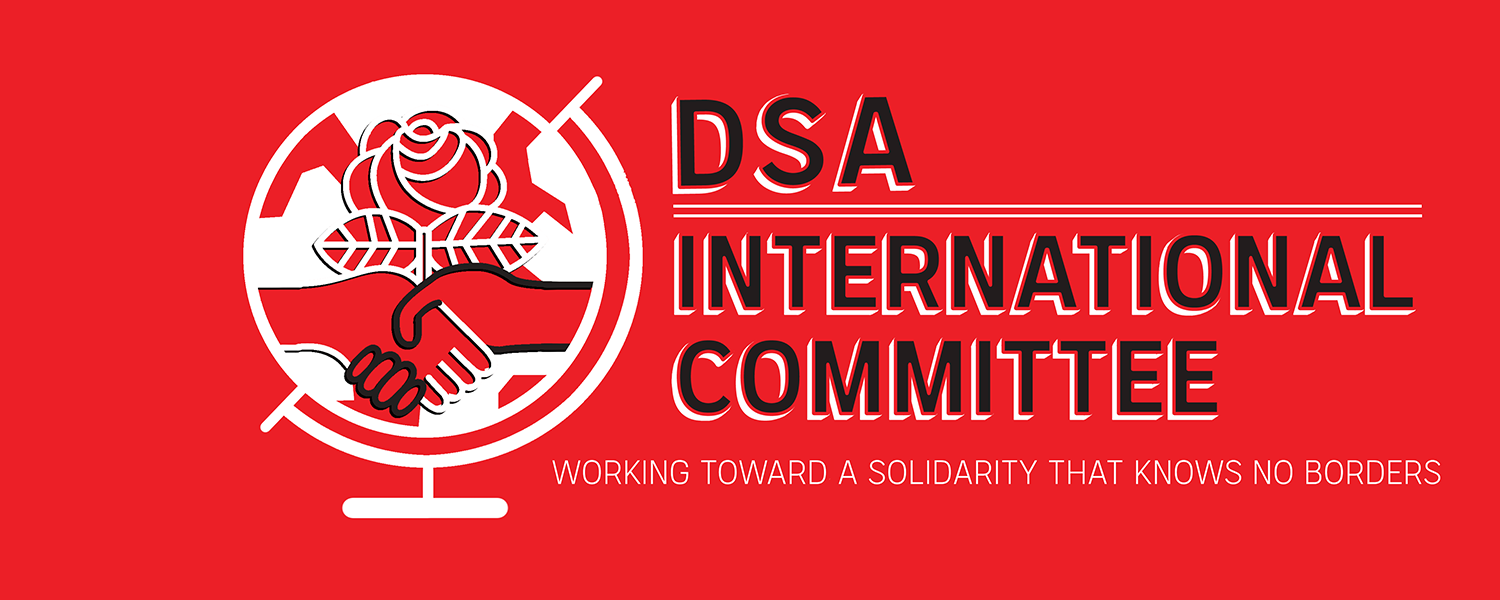Popular Uprising & Counter-Revolution in Iraq: A Teach-In
Start: 2020-10-17 12:00:00 UTC Eastern Daylight Time (US & Canada) (GMT-04:00)
End: 2020-10-17 14:00:00 UTC Eastern Daylight Time (US & Canada) (GMT-04:00)
This is a virtual event

Please join DSA’s International Committee for this teach-in on the current situation in Iraq, marking the one-year anniversary of the Iraqi popular uprising.
Since October 2019, Iraq has seen massive demonstrations against the political corruption and economic malfeasance of the country's governing class. The protesters in cities across the country's south and in the capital of Baghdad have sustained this movement for a year now. “Even if the current movement fails to achieve a political revolution,” the Iraq scholar Fanar Haddad has observed, “it is undoubtedly a revolutionary movement that has already achieved a cultural revolution.”
These overwhelmingly peaceful demonstrations have been met with what Amnesty International describes as a “lethal campaign of repression against protesters.” Iraqi security forces have deployed live ammunition and deadly “smoker” grenades, killing several hundred protesters. There is, according to Amnesty, an “ongoing wave of intimidation, arrests and torture” targeting Iraqis associated with the protests. In the last few months, an alarming number of Iraqi activists and writers have been assassinated.
Add to this domestic equation the volatile regional and global dynamics at work: the U.S. drone strike that killed Iranian Quds Force commander Qasem Soleimani and Iraqi militia leader Abu Mahdi al-Muhandis in January, which brought the U.S. and Iran to the brink of war, and the escalating war of position between Washington and Tehran inside Iraq, which plays out in the growing battle between Prime Minister Mustafa al-Kadhimi and the country’s militias. As Ishaan Tharoor has noted, Trump and Pompeo are turning their ‘maximum pressure’ campaign on Iraq.
How should leftists and internationalists make sense of the complex situation in Iraq today? What should we know about the protest movement and popular struggles in the country? How can we stand in solidarity with progressive forces in Iraq?
These are some of the questions we will explore in this teach-in.
Speakers:
Zahra Ali teaches sociology at Rutgers University. Her book Women and Gender in Iraq: Between Nation-Building and Fragmentation (2018) examines Iraqi women’s activism and feminisms through an in-depth ethnography of post-invasion Iraqi women’s rights organizations and a study of women’s social, economic and political experiences since the formation of the Iraqi state. She is interested in capitalism, (post)coloniality, decolonial feminisms and epistemologies.
Fanar Haddad is the author of Sectarianism in Iraq: Antagonistic Visions of Unity (2011) and Understanding 'Sectarianism': Sunni-Shi'a Relations in the Modern Arab World (2020). He is a Visiting Fellow at the Middle East Centre, London School of Economics (LSE) and Senior Advisor to Iraqi Prime Minister Mustafa al-Kadhimi. He previously taught at the University of Exeter, Queen Mary, University of London and the National University of Singapore.
Schluwa
Sama is a PhD candidate at the University of Exeter. Her research
focuses on the political economy of Iraq and Iraqi Kurdistan and is
based on in-depth ethnographic work among peasants and farmers. She is
currently based in Baghdad and has witnessed and written extensively on
the Iraqi October uprising from a political-economic perspective, in
articles for Jacobin, openDemocracy and the Rosa-Luxemburg-Stiftung.
